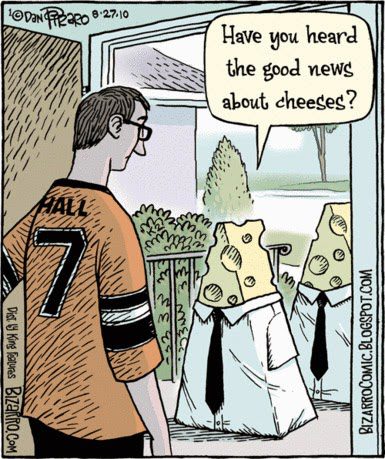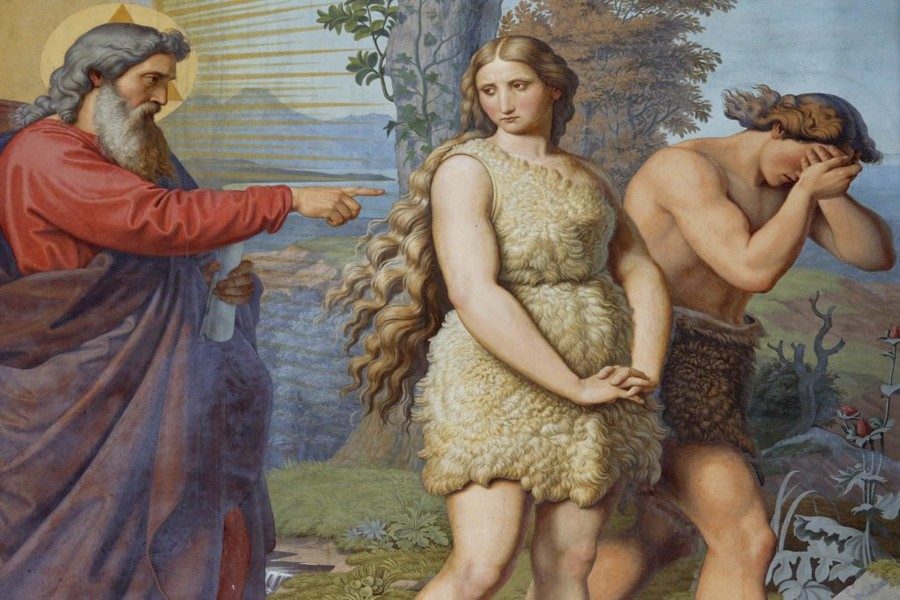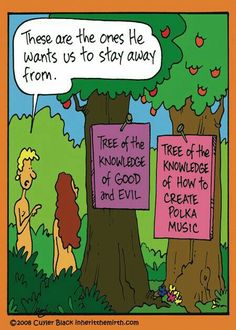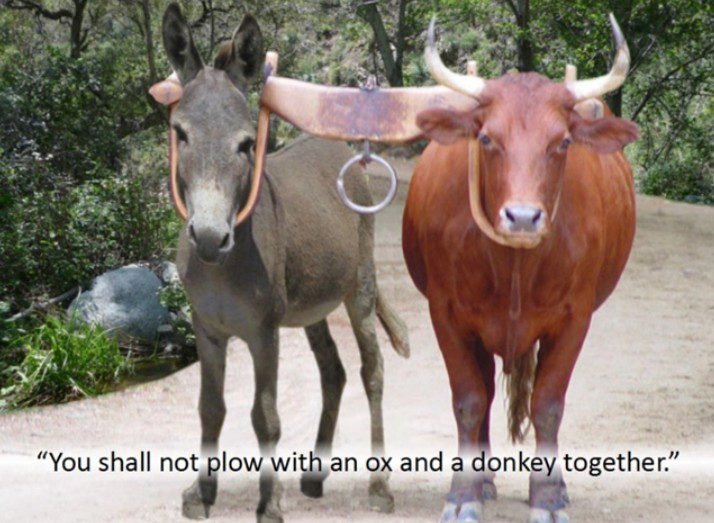
Guest post by John
I don’t remember the exact date when I decided that I would not label myself as a Christian anymore. It’s probably been a couple of years — a gradual process, not a one-time event. Ironically, my deconversion was mainly due to a very in-depth, two-year study of the Bible and its history. Don’t get me wrong, I had studied the Bible for years previous to this. But it was always with the denominational glasses I had on at the time, and the theology books about the Bible that were written by authors within that same camp. Once I started studying with an open mind (at least as open as I could manage at the time) and read books by many different authors, wow! . . . I finally came to a place where I just couldn’t believe it anymore.
Recently, for some reason, I started thinking about my life when I was part of the Christian religion versus where I am now. Back then, I was happy where I was. I didn’t leave the church because of some hurt or disappointment, it was just what I thought I was supposed to do at the time. Once away from the influence of the church, I was able to study and ponder more freely, using my own mind to decide what I believed, and not what I was told to believe.
Now that I don’t hold to any of those beliefs, I’m also happy. It’s nothing that I can quantify, so it’s just my experience. I think I’m happier and better equipped to handle life now. I’ve learned a lot about the human brain and my own personality. Through that understanding and some meditation practice, I was able to come out of a four-year depression. I prayed and prayed for my depression to be lifted from me, but it wasn’t until I gained some understanding of how my brain works that I was able to take steps to head out of it.
I have some level of pain in my body most days. It’s from various things such as scoliosis, arthritis, years of running, karate, weight lifting, etc. I was very active in my youth and always just pushed through the pain. I eventually got to the point where I had to abandon most of my athletic activities. During this time, I prayed and prayed for healing. Nothing changed. I eventually found a tai chi instructor and started doing yoga. I was also able to find a good chiropractor. These helped me greatly! It could be argued that these were “answers” to my prayers. I guess that could be, right? But I did go looking for these tools hoping for some kind of relief. I am now relatively pain free compared to several years ago.
I am better off financially than I was when I was in church. I faithfully gave ten to twenty percent of my gross income to the church, trusting that God would take care of my needs. I didn’t go broke or anything like that. In fact, I had some pretty amazing things happen along the way to keep me going financially. But after I quit giving all that money to the church, I was able to come out of debt for the first time since graduating from college in 1991. I’m all for giving to charitable organizations. I still give to organizations that I believe in. But when I took some time and started saving and/or paying my debts with the money I gave to the church, I was able to pay off stuff and have the money to give without putting myself in a bad financial situation.
What about all those friends that I left behind? Good question. I enjoyed the fellowship that I had with lots of people in the church. But once I left, I realized that those were task-based relationships. And there is nothing wrong with that. We all have them, whether at work, our kids’ activities, or people we meet while doing our hobbies, etc. When I left the church, I did not hear from one church member. Again, they were task-based relationships, and I get that.
I have fewer “friends” now than I used to, but the friendships that I have now are deeper and more real and they let me be myself, and vice versa.
That’s something I really don’t miss! Putting on the “church face,” especially if you are on staff. “How are you today, pastor?” “Blessed and highly favored, brother. Ha ha ha haaaa.” I rarely felt the freedom to be real with people. And I rarely felt that they were real with me.
Remember all those bad things that we thought would happen to us if we didn’t do what we were told to do? Well, guess what? I don’t attend church anymore, I don’t read the Bible anymore, I don’t pray anymore (I no longer believe that there is a god to pray to, at least not the Christian version of god), I don’t tithe anymore . . . and nothing tragic has befallen me because I don’t do any of these things. Oh sure, I have to deal with the occasional cold or unexpected expense or the death of a loved one. But that’s just life! I had all those things going on when I was a Christian. Now that I’m away from religion, I feel as if I can see a little clearer. I have non-religious friends and religious ones, and they all deal with life, just as I do. Sometimes tragedy befalls us. No one is exempt. But, oddly enough, I feel like I handle the difficulties of life better now than I did in my religious days. I’ve learned to flow with life better — the good and the bad. Instead of wondering why a prayer wasn’t answered or why God would let something happen, I just realize that everyone has ups and downs. Sometimes people make good decisions and sometimes they make bad ones. I’ve learned a lot from secular Buddhism and Taoism over the last few years, and that helps me. I’m not saying I never get down or frustrated or angry. But I much prefer my current mindset and outlook on life to the way I used to see things.
I rarely feel bad about myself. Depending on the flavor of Christianity people come from, they are constantly told that they are sinners; worthless crap that Jesus had to die for so they don’t go to hell. Man, that just sounds weird to me now! I’m not saying that I’m always what people would call a saint. But I try not to be a dick, choosing instead to treat people the way I would like to be treated. Oh, by the way, that’s in the Bible. LOL! And sometimes, I do act like a dick, but I do my best to treat people decently. I remind myself that life can be really hard and people are just trying to get through their day. so I try to be kind. Not for any future heavenly reward, and not for any medals, or a better life next time around. Just because . . . It feels good to be kind with no hook or ulterior motive. (Like, if I’m nice to this person, maybe they will come to church with me. Gag!!!)
Anyway . . .
Overall, my life is better now than when I was a Christian. At least my outlook on life and the way I handle things seem to be better. I wouldn’t go back to the religious days.

 A guest post by Paul McLaughlin
A guest post by Paul McLaughlin






